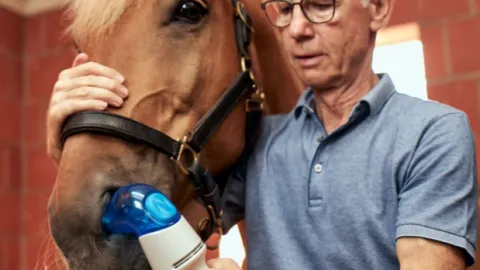Strike-out of Sandoz’s disgorgement claim in rivaroxaban litigation
September 22, 2025
On 1 September 2025, Michael Tappin KC sitting as a Deputy Judge of the High Court handed down a judgment in favour of Bayer’s application to strike out Sandoz’s claim for an account of profits under a cross-undertaking given by Bayer when obtaining interim injunctions against Sandoz.
Background
The claim stemmed from a series of injunctions Bayer obtained against Sandoz (and other generics) on its patent relating to the use of rivaroxaban for once-daily administration (the Patent). The injunction order made by HHJ Hacon contained a cross-undertaking by Bayer stating that if the order caused loss to the generics, they “should be compensated for that loss” by Bayer. Subsequently, the Patent was found invalid, and the generics were entitled to seek compensation pursuant to the cross-undertaking.
Sandoz’s claim
Sandoz’s Points of Claim set out that its principal claim was for an account of the profits that Bayer made as a result of the injunctions, as an award of damages would not provide Sandoz with an adequate remedy in the circumstances. The claim for an account of profits was on the basis that: (i) the assessment of relief under the cross-undertakings should be on the basis that there had been a contract in which Bayer agreed not to prevent Sandoz from doing that which the injunction prevented Sandoz from doing, and thus that the cross-undertaking permits the Court to make any monetary order that would have been available if the claim under the cross-undertaking was for breach of such contract; and (ii) the circumstances of the case are exceptional such as would justify an account of profits for breach of contract (in line with Attorney General v Blake [2001] 1 AC 268). The exceptional circumstances were stated to be that Bayer obtained the grant of the Patent on the basis of false and misleading claims.
Michael Tappin KC’s decision
In deciding that the cross-undertaking did not permit Sandoz to advance a claim for an account of profits, Michael Tappin KC stated that the meaning of the cross-undertaking, having regard to its purpose in line with established case law, was clear, namely, that Bayer undertook to compensate Sandoz for loss Sandoz had suffered as a result of the injunctions, as opposed to disgorge profits Bayer made as a result of the injunctions.
The application of contractual principles of assessment by analogy was deemed to not justify treating matters as if there were in fact a contract between the applicant and the respondent. On the contrary, the remedies were limited by the terms of the cross-undertaking. In the present case the remedies available were limited to compensation for loss suffered by Sandoz, and thus excluded the remedy of an account of profits even if one would have been available had there in fact been a contract.
This finding was made notwithstanding a statement made by the Court in Les Laboratoires Servier v Apotex [2008] EWHC 2347 to the effect that, where what is found to be a wrongful extension of patent protection results in a benefit to the patent holder which exceeds and outstrips the loss which is occasioned to the generic company whose market entry is delayed by a preliminary injunction, restitutionary damages may be appropriate. This statement was dismissed as being obiter.
Overall, Michael Tappin KC stated that it was clear that under the cross-undertaking given by Bayer, Sandoz’s remedy was limited to compensation for the loss it had suffered as a result of the injunctions. Therefore, the paragraphs of Sandoz’s Points of Claim seeking an account of profits should be struck out under CPR 3.4(2)(a).
Potential for change going forward
Michael Tappin KC’s judgment ultimately turned in this case on the wording of the cross-undertaking. Notwithstanding the issue of whether or not the circumstances were exceptional such as to justify an account of profits for breach of contract, there was no scope within the wording of the cross-undertaking which would allow the Court to consider granting such a remedy.
Michael Tappin KC wasn’t persuaded by Sandoz’s argument that this is a developing area of law (based on the aforementioned statements in Servier v Apotex) and thus that the claim for account of profits should proceed to trial. However, it seems likely that, given the recent scrutiny from the Court and practitioners in relation to the approach to preliminary injunctions in the life sciences industry (see, in particular, the recent dapagliflozin litigation), there are likely to be increased attempts to change current practice in this area.
Generic and biosimilar manufacturers have expressed frustration with the frequency with which preliminary injunctions are granted in life sciences cases. This is because validity and infringement of the relevant patent is only given a cursory examination at the preliminary injunction stage in the UK. Instead, the Courts (in particular in relation to products sold in primary care) have traditionally been reasonably swift to conclude that the patentee will suffer irreparable harm following generic launch and that a holding the ring injunction should thus be granted until the decision on the merits is issued. The last few years have witnessed the Courts subjecting patentees’ arguments on irreparable harm to greater scrutiny but for now at least, the principles in American Cyanamid are applied and the patentee need only establish an arguable case on the merits.
In instances in which the relevant patent is later found to be invalid or non-infringed, generic or biosimilar manufactures have to file a damages inquiry under the cross-undertaking associated with the injunction in order to obtain compensation for the period they were wrongly kept off the market. Such damages inquiries are costly and originators often pay out significantly less under a cross-undertaking than the profits they actually made during the period of an injunction (particularly given that the NHS rarely intervenes in these cases).
It is highly likely that generic and biosimilar manufactures will push for some level of fortification of the wording of the cross-undertaking going forward. Practitioners are advised to carefully review the wording of these cross-undertakings to ensure they are fit for purpose for their respective clients, and perhaps engage in some level of negotiation in relation to what might have previously been standard wording. It remains to be seen how the Courts would deal with such issues in the long run.
These issues will be explored in a panel discussion to be held at Bristows LLP’s London office on 1 October 2025. More information related to this session, including a link for registration, can be found here.
You may also like














Kant
In the UK, it could be reasoned that the NHS suffers damage through having to pay increased chargers for the medication. Should the PI perhaps include a requirement that the excess profits be returned to the purchaser of the medication if the patent is ultimately held to be invalid or not infringed?